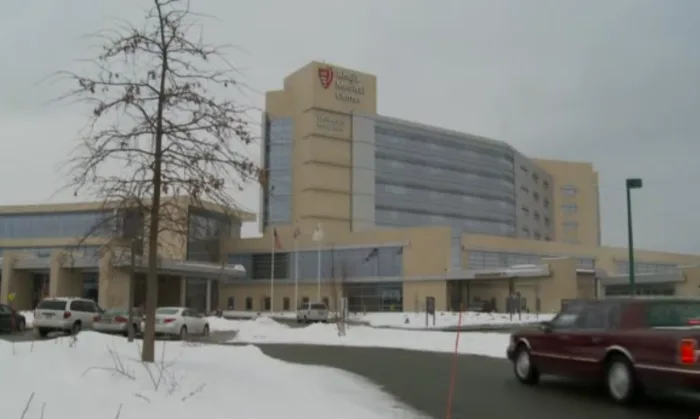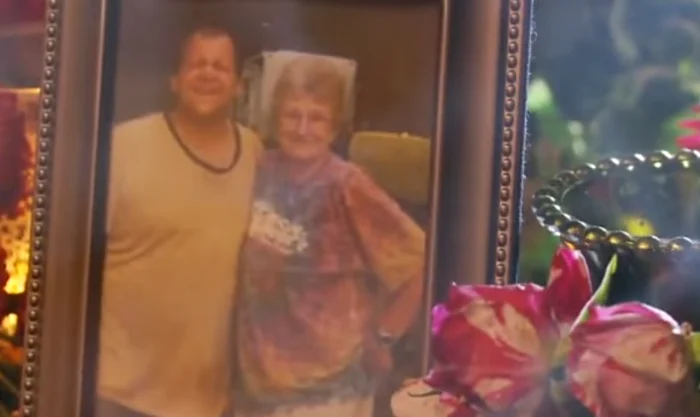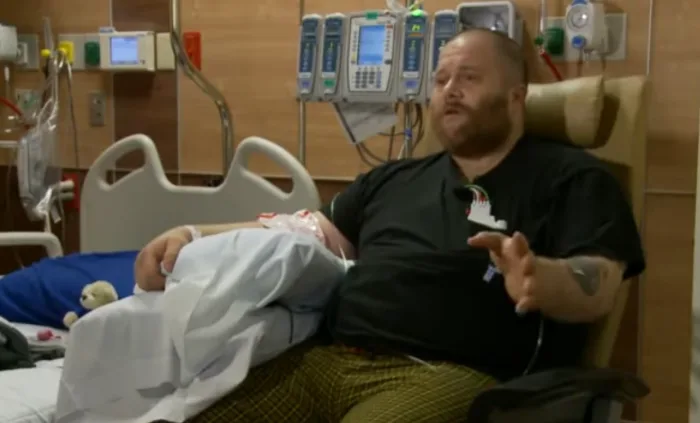A man who was clinically dead for 45 minutes shocked doctors when his heart suddenly started beating again—bringing with him an extraordinary story of the afterlife.
Brian Miller, a 41-year-old from Ohio, suffered a massive heart attack and was pronounced dead at a local hospital. But against all odds, his heart inexplicably restarted nearly an hour later. While medical professionals were stunned by his recovery, Miller himself was more focused on what he experienced while he was “gone.”

A Journey to the Afterlife?
During the time his heart had stopped, Miller recalls what he describes as a peaceful and vivid journey. He told in an interview that he found himself walking along a beautiful pathway filled with vibrant flowers. Then, he encountered someone unexpected—his mother-in-law, who had recently passed away.
“She grabbed my arm and told me, ‘It’s not your time,’” Miller recalled. He says the moment was overwhelmingly real and deeply emotional. He also claimed to have seen another deceased relative before waking up back in his hospital bed.
Despite being deprived of oxygen for 45 minutes—a situation that often results in severe brain damage—doctors were stunned to find Miller had no neurological impairments. His remarkable survival has reignited discussions about near-death experiences (NDEs) and what they could mean.

Science Weighs In on Near-Death Experiences
Miller’s story is far from unique. Researchers have been studying NDEs for years, searching for answers about what happens to the brain at the edge of life.
Dr. Steven Laureys, a Belgian neuroscientist leading the Coma Science Group in Liege, has been at the forefront of studying near-death experiences. His research suggests that people who undergo NDEs often experience profound transformations—many lose their fear of death and describe the event as the most significant moment of their lives.
While many believe NDEs provide a glimpse into an afterlife, Laureys argues that these phenomena are likely rooted in the brain’s physiology. He describes NDEs as a product of a brain under extreme stress, generating powerful, dream-like experiences.
The Most Intense Memories Ever Recorded?
To better understand NDEs, Laureys and his team conducted a study comparing these experiences to other significant life events—such as births and weddings—as well as memories of dreams and thoughts. They found that NDEs were far more vivid and detailed than any other type of memory.

“We were surprised by how much richer these memories were,” Laureys explained. Patients who had NDEs described them with a sense of reality that far surpassed even their most cherished memories. Even decades later, the details remained as sharp as if they had happened yesterday.
Faith vs. Science: The Debate Continues
While Laureys and other scientists argue that NDEs are a natural brain response, others see them as proof of something beyond science. Dr. Eben Alexander, a neurosurgeon who once considered himself an agnostic, changed his views after having his own near-death experience. He now firmly believes in an afterlife, arguing that his brain was not functioning at the time of his experience—meaning it couldn’t have simply been a hallucination.
Laureys strongly disagrees. “There is no evidence that consciousness exists without brain activity,” he stated. His research suggests that many people experience NDEs without being physically near death—suggesting that the perception of dying, rather than actual death, might be the key trigger.

A Mystery That Won’t Go Away
For centuries, accounts of NDEs have fascinated and baffled people. Some claim to see religious figures, while others simply feel overwhelming peace. Though beliefs differ, what’s clear is that these experiences leave a lasting impact on those who have them.
Despite ongoing studies, scientists still don’t have definitive answers. Laureys acknowledges that more research is needed, but one thing is certain: near-death experiences remain one of the greatest mysteries of human consciousness.
For Brian Miller, the experience has changed his perspective on life—and what may come after. “There is an afterlife, and people should to believe in it,” he said.


